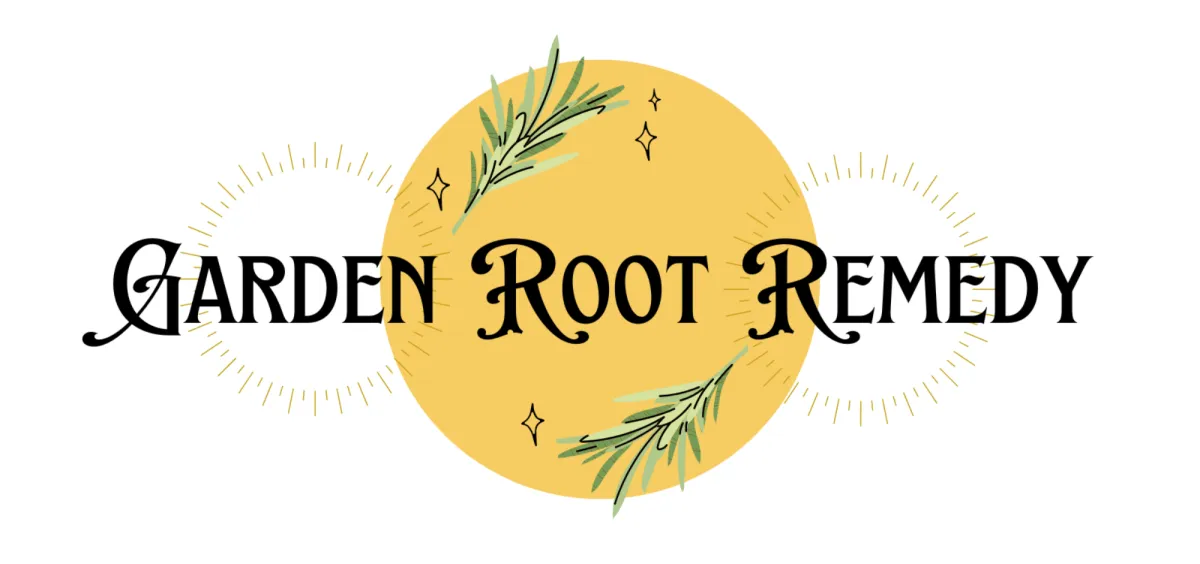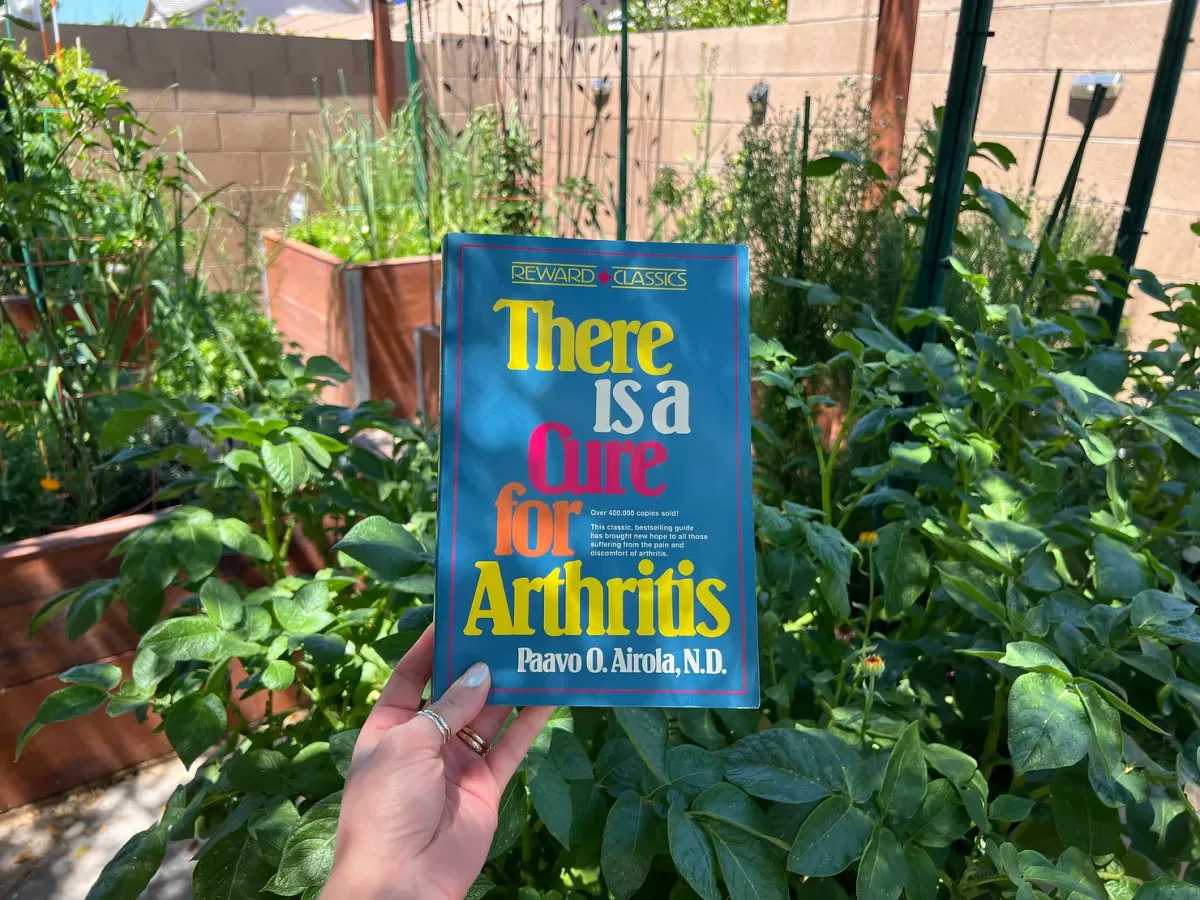
READ ABOUT IT:
Healthy Herbal Living

The Power of Food, Diet & Herbs
The Power of Food, Diet & Herbs
A big question I have been getting lately with my consultations is “what food will aid to enhance my health and which foods can make my health worse?”
I was diagnosed with Rheumatoid Arthritis in 1991. Since then, I was in tune with what I ate and how that food made me feel in my body. Did I feel worse or the same? When speaking with my rheumatologists over the past 30+ years, I never really had any helpful conversations about foods and what would make my inflammation worse. A doctor once suggested keeping a food diary or journal to record what may be causing flares in my day-to-day life.

My beautiful mother-in-law, Joan, is a living testament to good health and she bought me a book 33 years ago called, “There is a Cure for Arthritis” by Paavo Airola, published in 1968. It talks about the elimination and reintroduction of foods and beginning a new methodical, clean diet with vegetable broths, fruit juices, teas, intermediate dieting, hot and cold, rest, massage, attitude, etc. This book has forever changed my thought process on health and healing!
I’ve learned that functional foods can help you battle chronic illness and improve your health. Including foods high in vitamins, minerals, and antioxidants, which can contribute to your overall health and well-being. Some functional foods contain bioactive compounds that have been linked to various health benefits, such as improved heart health, enhanced immune function, improved gut health, and reduced risk of chronic diseases like cancer and diabetes.
Functional foods have been shown to help prevent or manage specific health conditions, such as pre and probiotics for gut health, omega-3 fatty acids for heart health, and fiber-rich foods for digestive health. High fiber foods can help with weight management by promoting feelings of fullness, reducing calorie intake, and supporting metabolism. Other functional foods contain nutrients and compounds that support brain health and help you think more clearly, even potentially reducing the risk of age-related cognitive decline and improving mood and mental well-being.
Functional foods that take you beyond basic nutrition include:
Probiotics which contain live bacteria or yeast cultures that benefit the digestive system by improving gut flora balance, such as yogurt, kefir, and fermented vegetables (sauerkraut, kimchi, brined olives, tempeh, kombucha, etc).
Prebiotics are foods containing non-digestible fibers that promote the growth of beneficial bacteria in the gut, such as bananas, onions, garlic, and whole grains. Prebiotic are often associated with specific types of fibers found in fruits, vegetables, and grains. Herbs that have prebiotic properties include: Dandelion Root, Burdock Root, Chicory Root, Ginger, and Turmeric. All can be made into a custom tincture or taken individually.

Incorporating these herbs into your diet, whether through cooking, herbal teas, or dietary supplements, can contribute to a diverse and healthy gut microbiome, which is essential for overall health and well-being. However, it's essential to consume a variety of prebiotic foods, including herbs, along with a balanced diet rich in fruits, vegetables, whole grains, and other sources of dietary fiber, to support optimal gut health.
Omega-3 Fatty Acids foods which are found in fatty fish such as, salmon, mackerel, and sardines, as well as flaxseeds, chia seeds, and walnuts, omega-3s are known for their heart-healthy benefits and anti-inflammatory properties.Omega-3 fatty acids are essential fats that play crucial roles in brain function, heart health, and overall well-being. While fatty fish like salmon, mackerel, and sardines are the most well-known sources of omega-3s, there are also plant-based sources and herbs that contain these beneficial fats.
Some foods and herbs rich in omega-3 fatty acids: Flaxseeds, Chia seeds, Hemp seeds, Walnuts, Seaweed and algae (such as chlorella & spirulina).
While herbs may not be a primary source of omega-3 fatty acids, incorporating a variety of plant-based sources into your diet can help increase your overall intake of these essential fats and promote better health.
Antioxidant foods which can be found in fruits, vegetables, nuts, seeds, and certain beverages like green tea. Antioxidants help protect cells from damage caused by free radicals, potentially reducing the risk of chronic diseases like cancer and heart disease. Some popular antioxidant herbs include: rosemary (anti inflammatory and neuroprotective), turmeric (anti inflammatory, chronic disease protective, and overall health support), ginger (anti inflammatory), cinnamon (rich in polyphenols and flavonoids which can reduce blood sugar levels and reduce inflammation), oregano and thyme (antimicrobial and anti inflammatory), and sage (protects against oxidative stress and inflammation).
These are herbs that are in most kitchens and can be incorporated into cooking, teas, and supplements antioxidant-rich herbs into your diet which are a natural way to support your body's defenses against oxidative damage and promote overall health and well-being.
High Fiber foods rich in soluble and insoluble fiber, such as whole grains, fruits, vegetables, legumes, and nuts, promote digestive health, regulate blood sugar levels, and lower cholesterol.
Plant Sterols and Stanols found naturally in foods like nuts, seeds, vegetable oils, and whole grains, these compounds can help lower cholesterol levels and reduce the risk of heart disease.
Functional beverages fortified with vitamins, minerals, herbs, or other bioactive ingredients to provide specific health benefits, such as drinks with added electrolytes and green tea with added antioxidants. Garden Root remedy products such as So Thirsty Tea and my Multivitamin tincture can be a natural replacement for these important nutrients.
Fortified foods are enriched with additional nutrients to address specific nutritional needs, such as calcium-fortified orange juice, iodine-fortified salt, or vitamin D-fortified milk.
Functional foods offer a proactive approach to health and wellness by incorporating the foods and herbs discussed. It is important to be mindful of what you put in your body. Food can either enhance your overall well being or destroy it! I can’t stress this enough… It is so important to listen to your body after you eat. Do the foods you just ate give you energy, do they make you sluggish, do they make you have more pain and inflammation? A food diary can help you make good choices and eliminate those that make you feel awful and cause bloating, diarrhea, headaches, inflammation, brain fog, and many other symptoms that will not have you running at your peak level.
Interested in finding out what herbs you can incorporate in your life?
Schedule your FREE 15-minute consultation with me today!
Be Well & Take Care!
Maria Nasta, MSN, FNP-C
Owner, Clinical Herbalist
"Rooted in Nature, Blooming with Wellness."

Originally published: April 23, 2024
FDA warning: This statement has not been evaluated by the Food and Drug Administration. This product is not intended to diagnose, treat, cure, or prevent any disease.
Always check with your doctor before using a new product or supplement if you have any questions or concerns about how a product may affect your current health, medications, pregnancy, or breastfeeding.
